5 Best Lens for Wedding Photography
Over the years, I’ve learned that having the right lenses can transform how you capture a wedding. A well-chosen lens not only makes your job easier but also elevates the quality of the photos you deliver to your clients.
As a wedding photographer, my job can be fast paced and intense. I need versatility, reliability, and performance from my gear to ensure I can handle anything the day throws at me—from quiet, emotional moments to high-energy celebrations. This guide will break down the 5 best Lens for wedding photography, suggest great options across different brands, and provide a few tips for making the most of them.
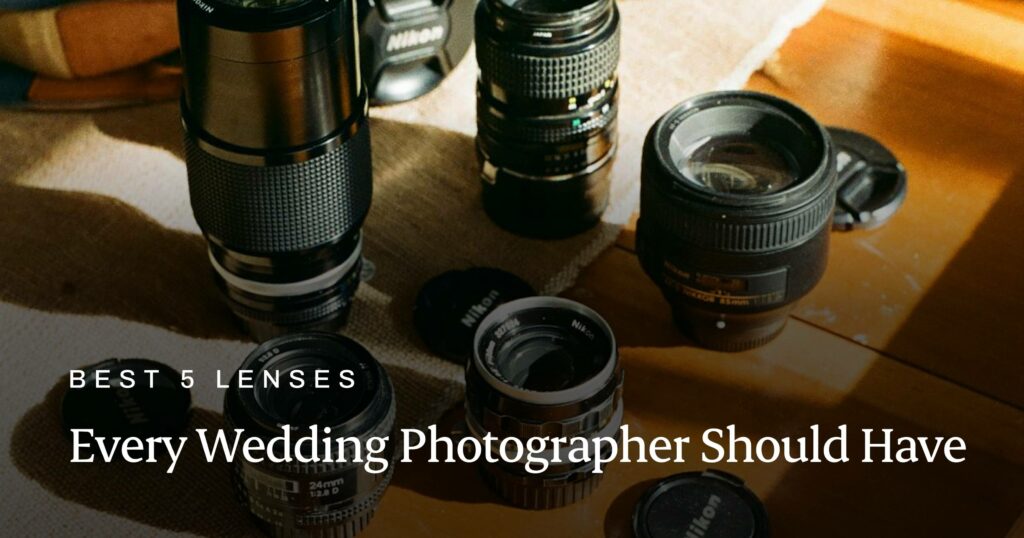
What to look for when buying a lens?
Choosing the right lens can be a big decision, which can do more for your photography than any other item in your gear bag. But you shouldn't just go with the popular choice automatically, it’s about finding the right photography gear that works seamlessly with your style and the demands. A lens with a wide aperture (like f/1.4) is ideal for low-light settings, such as dimly lit churches or evening receptions, and helps create beautiful background blur for portraits, but the compromise can be the size and weight of the lens. I personally try to balance this by having some f/1.4 prime lenses in my kit, as well as smaller f/1.8 primes.
Consider the focal length; wide lenses like a 24mm are perfect for storytelling, tight spaces, and group shots. While a longer focal length like 85mm is excellent for portraits or capturing moments discreetly from a distance. A zoom lens will cover multiple focal lengths but with the compromise of weight, low light performance, and sometimes image quality.
Build quality, weather sealing, and reliable autofocus are also essential for handling unpredictable wedding environments and fast-paced moments. My lenses for wedding photography listed below should all be durable enough to take some heavier use by professional photographers.
Ultimately, investing in fewer, higher-quality lenses will always deliver better results than spreading your budget across cheaper options.
What is the Best Camera Lens for Wedding Photography?
Lens Type 1: The Standard Zoom
My first lens is a standard zoom. This is my Swiss army knife. It’s perfect for ceremonies, group shots, portraits and candid moments. When circumstances are ideal, I have no problem shooting an entire wedding day on my standard zoom lens.
The 24-70mm range offers incredible flexibility, allowing you to go from a wide shot of the venue to a tighter portrait without skipping a beat. It’s the ultimate all-rounder for capturing a variety of moments quickly and efficiently.
Suggested Options:
- Canon: RF 24-70mm f/2.8 L IS USM
- Sony: FE 24-70mm f/2.8 GM II
- Fujifilm: XF 16-55mm f/2.8 R LM WR


Lens Type 2: The 24mm or 35mm Prime
My 24mm lens is my storytelling and low light powerhouse, but many photographers prefer a 35mm for the same purpose. The slightly wider field of view mirrors how we see the world, making it ideal for capturing authentic, documentary-style moments.
This is one of the best lens for wedding photography and I find it perfect for emotional, intimate scenes where I want to immerse my viewers in the moment. I often use it exclusively when I want a smaller lens, for example, in bridal prep, or dancefloors when my arms are tired from a busy day shooting.
Suggested Options:
- Canon: RF 35mm f/1.8 Macro IS STM
- Sony: FE 24mm f/1.4 GM
- Fujifilm: XF 18mm f/1.4 R LM WR (28mm equivalent)
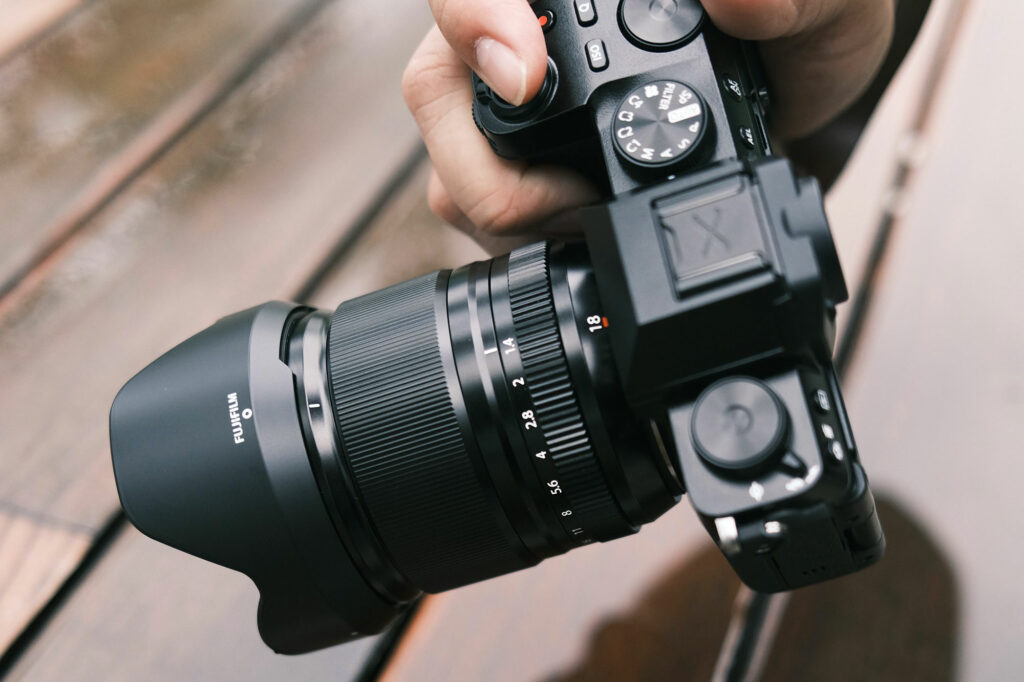
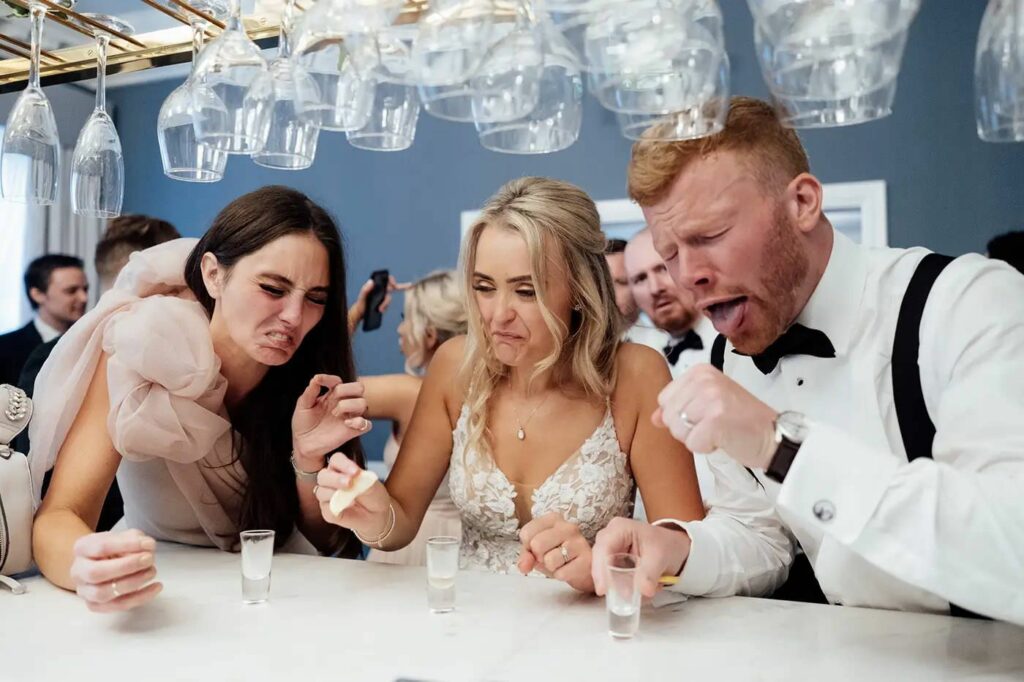
Lens Type 3: The (Classic) 50mm Prime
The 50mm lens is a classic for a reason. Its versatility and natural perspective make it a staple in my wedding photography bag.
It’s a flexible focal length that works for portraits, details, and storytelling shots. Personally, I opt for the smaller 55mm F1.8, as it’s much smaller than the f1.4 or f1.2 versions. My friend and wedding photographer, Kieran Bellis, uses the Sony FE 50mm f/1.2 GM Lens for weddings, and although larger, it’s his favorite wedding prime lens. This shows how the perfect wedding lens isn't always the same for everybody.
I also pair this with a small macro extension tube. This allows me to get close-up photographs of the wedding rings without carrying a dedicated macro lens.
Suggested Options:
- Canon: RF 50mm f/1.2 L USM
- Sony: FE 50mm f/1.2 GM or Zeiss 55mm f/1.8
- Fujifilm: XF 35mm f/1.4 R (50mm equivalent)


Lens Type 4: The Telephoto
As a candid wedding photographer, my long lens is easily my least used. That said, I always need to have access to it. My telephoto lens is invaluable for ceremonies or speeches when I'm forced to stand further away from the action.
A telephoto lens will also offer flattering compression for portraits, — if that’s your thing.
Many professional photographers swear by their 70-200mm zoom lens. Personally, I opt for a 135mm f1.8 lens. I often use the lens in dark churches or reception spaces, so a prime lens with a wider aperture is useful. It’s also smaller and lighter than most 70-200mm zoom options.
Suggested Options:
- Canon: RF 70-200mm f/2.8 L IS USM
- Sony: FE 70-200mm f/2.8 GM OSS II
- Fujifilm: XF 50-140mm f/2.8 R LM OIS WR
- Bonus option for Sony: Samyang 135mm f1.8

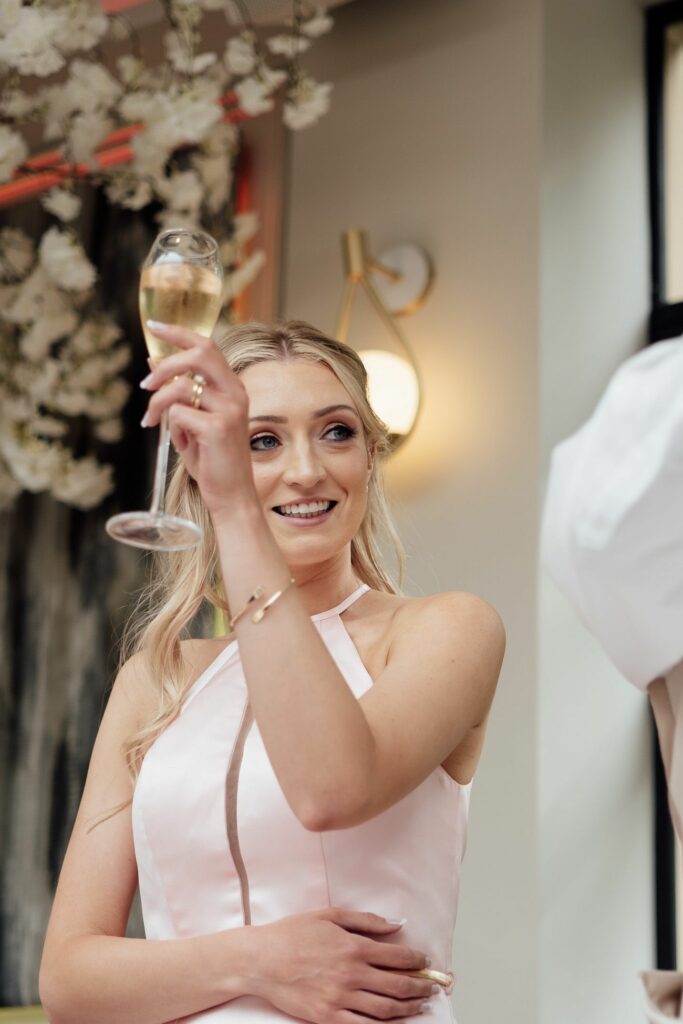
Lens Type 5: The 85mm Prime
When it comes to portraits, I love an 85mm lens. Its flattering perspective and creamy background make it a favorite for photographers.
Suggested Options:
- Canon: RF 85mm f/1.2 L USM
- Sony: FE 85mm f/1.4 GM
- Fujifilm: XF 56mm f/1.2 R WR (85mm equivalent)
Sony has recently released a ‘version ii’ of their 85mm f1.4 GM, which might just be the best prime lens for wedding photographers, in my opinion.

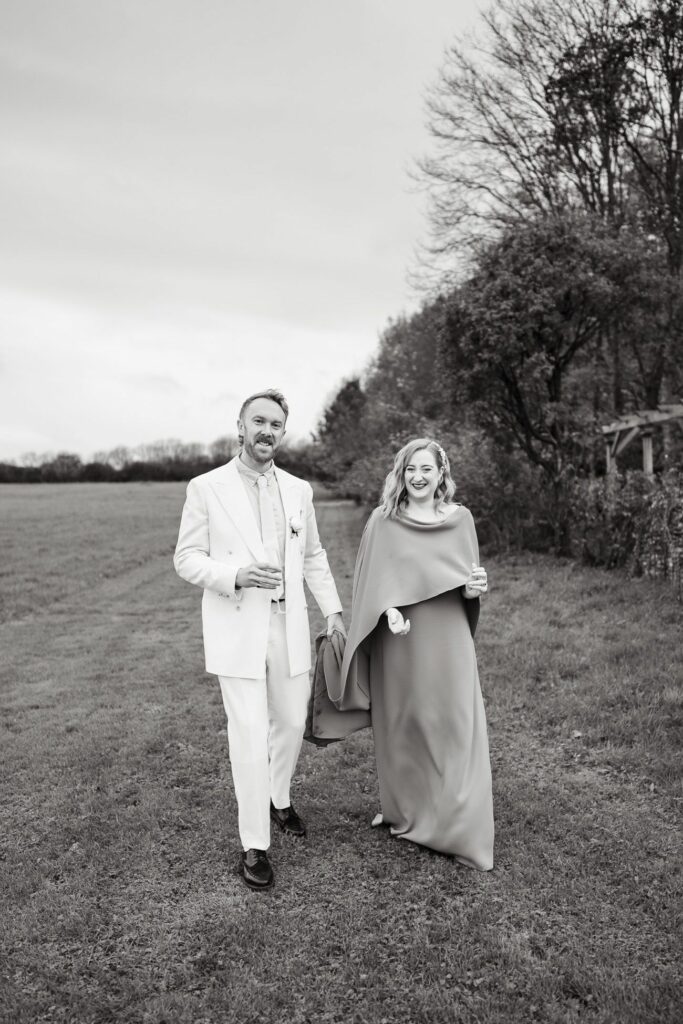
Also read: 7 Portrait Editing Software for Every Photographer
My Own Must Have Wedding Photography Lenses
These are my personal favorites. On my Sony A7IV cameras, I rely on the following lenses:
- Sony 24mm f/1.4 GM: Exceptional for wide shots and capturing the atmosphere.
- Sony 55mm Zeiss: Compact, lightweight, and incredibly sharp—a personal favorite.
- Sony 85mm f/1.4 GM: My go-to for portraits and some extra reach.
- Sony 24-70mm f/2.8 GM: A versatile workhorse for almost every scenario in good light.
- Samyang 135mm f/1.8: Perfect for ceremonies and discreet candid shots, replacing a traditional 70-200mm zoom.
I also carry a macro tube, which I pair with my 50mm lens for close-focus shots like rings and fine details.
The Right Lens for Wedding Photography
Great wedding photography requires more than skill—it requires the right tools. Whether you’re just starting out or looking to upgrade, investing in quality lenses is a must. Often, investing in a better lens is preferable to purchasing multiple cheaper lenses. For example, my 24mm 1.4 GM lens can easily be cropped to create an image similar to one shot on a 35mm lens, and will still be sharper than a cheaper 35mm.
You should choose lenses based on your unique style. The best lens for me will not suit every photographer, but these choices should get you on the right path.
Pairing those lenses with tools like Aftershoot ensures you’re not only capturing incredible images but also delivering them efficiently.
